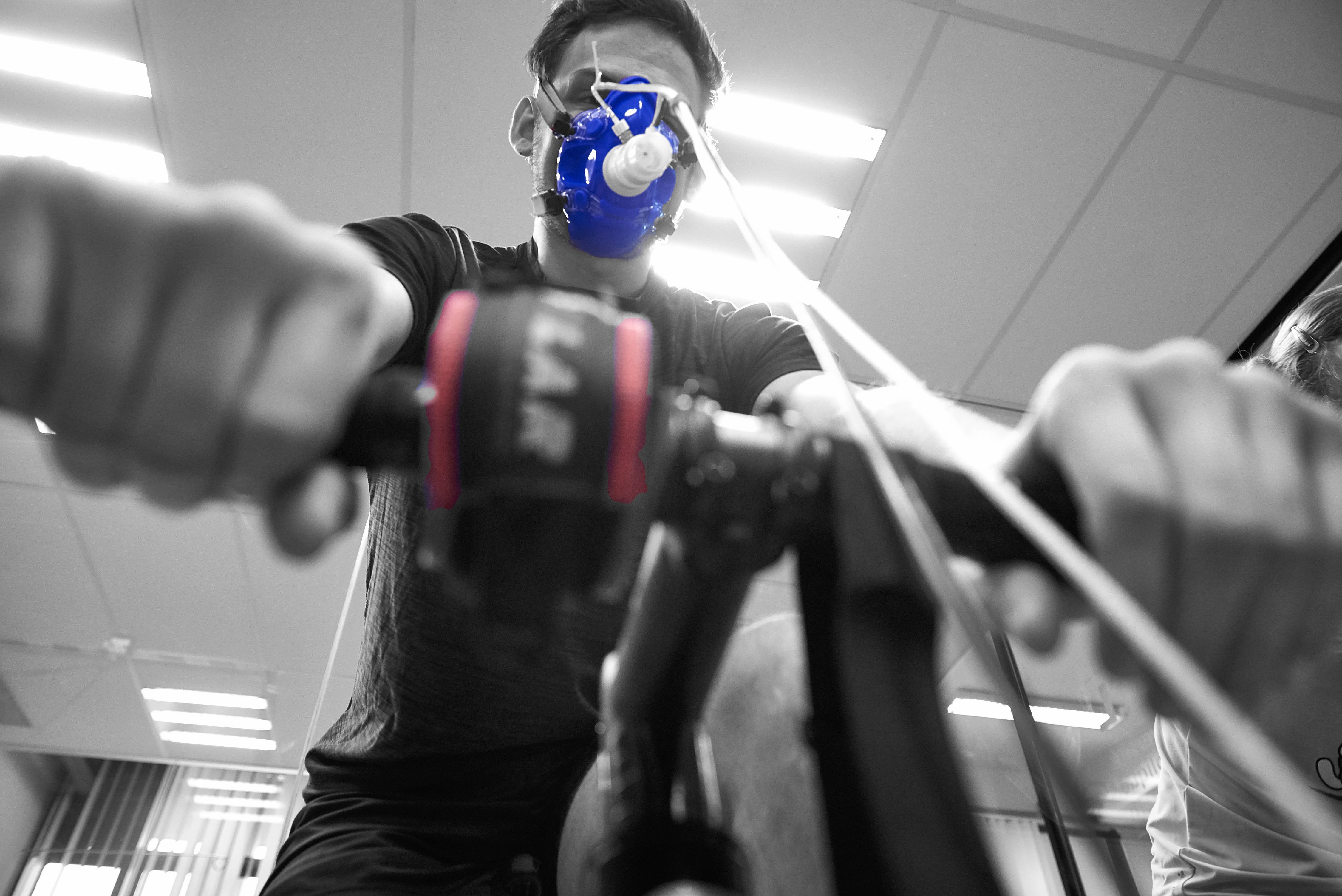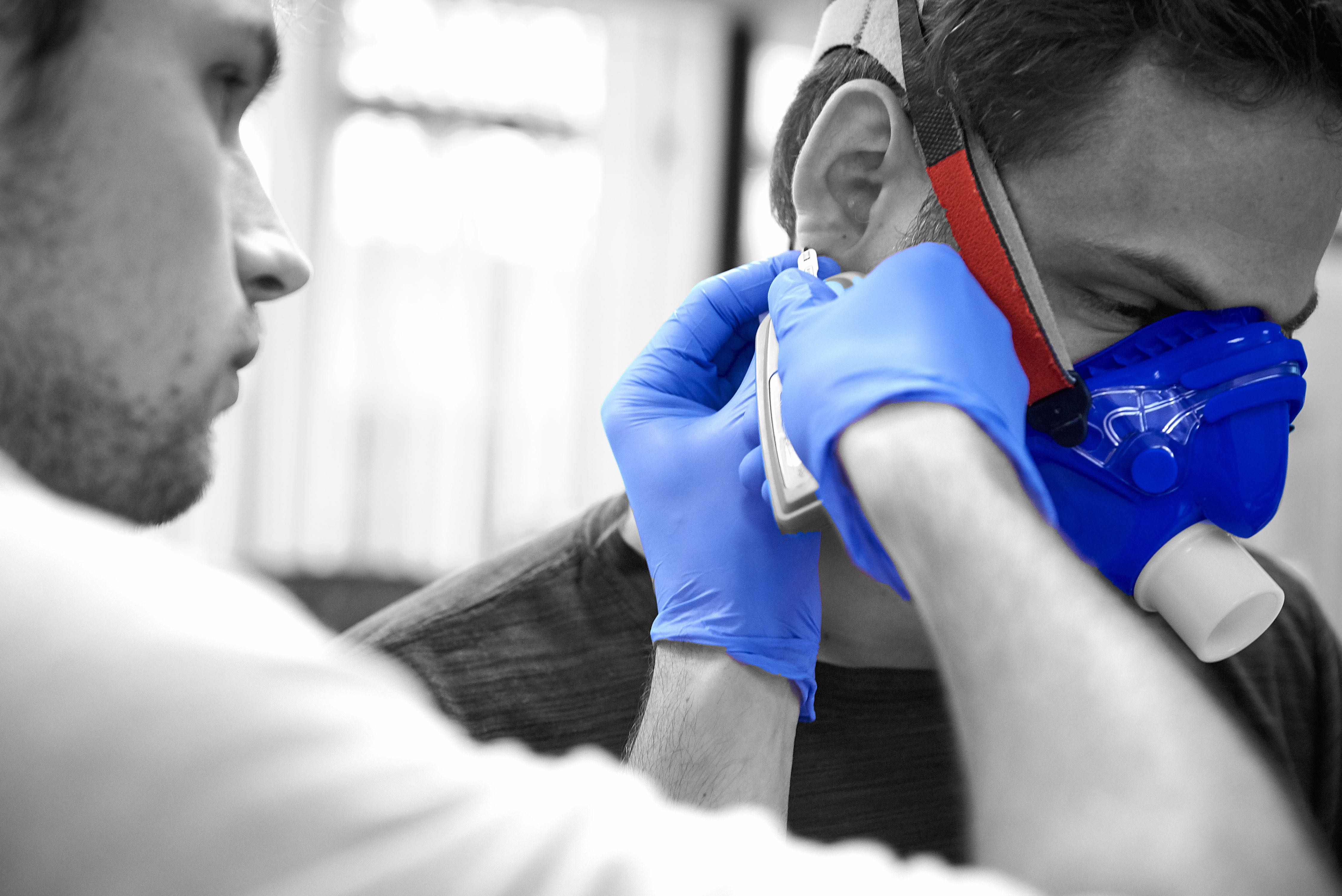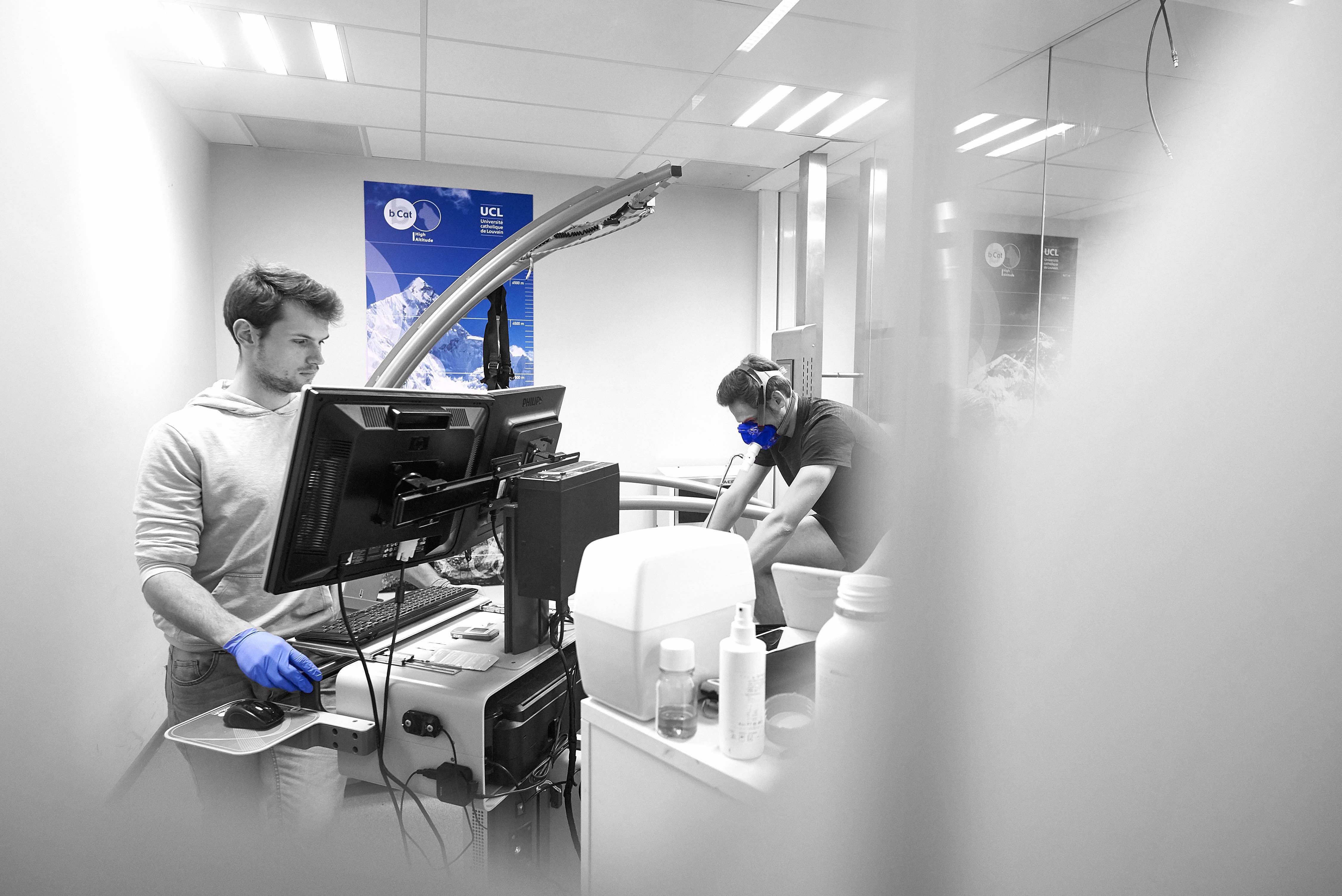-
A consistent determinant of performance...
... for endurance, intermittent and long sprint disciplines
<!--
-->
The visit begins with an examination with a sport physician to rule out risk factors. Then, an incremental exercise test is carried out under the supervision of a member of our team. During the test, various data are acquired:
- + Heart rate: heart rate monitor or ECG,
- + Respiratory exchanges (oxygen uptake and CO₂ production): indirect calorimeter (Ergocard MEDISOFT - Belgium),
- + Blood lactate: a drop of blood taken from the fingertip or the ear lobe (Lactate Pro 2 - Arkray Japan)
After the test, the obtained results (maximal power/speed, VO₂ max, FC max, ...) and the calculated parameters (lactate thresholds, cardiac adaptation, performance, ...) are presented and explained to you so that this evaluation is useful in programming your training sessions.
In order to carry out this test, you need to bring your specific sport equipment (depending on the choice of test). It is essential to avoid any intensive or long-lasting sport activity within the last 24 hours before the test. It is necessary not to be in the fasted state and to avoid taking stimulants (e.g. caffeine) or any other ergogenic aid (e.g. sodium bicarbonate) in order to obtain the most reliable results possible. Finally, do not forget to bring the necessary equipment for taking a shower.
The choice of the ergometer is made according to your sport discipline to be as specific as possible in order to provide results and interpretations useful for your sport practice.
To view the different ergometers available, click here.
This kind of evaluation is designed to measure maximal aerobic capacity in the healthy athlete. You will therefore be submitted to a maximal or near-maximal exercise test.
This test is not designed to detect any cardiac abnormality and does not replace a visit to your cardiologist. In case of doubt on this matter, do not hesitate to question the doctor and to inform him/her of any cardiovascular history.
In addition, you will not be surprised if the doctor performing the pre-test screening asks you about your medical history. Sometimes, it is necessary to obtain the advice of a cardiologist or to get the results of another medical examination oriented towards the search of a cardiac disease (ECG during exercise...) before proceeding with this maximal exercise test.











